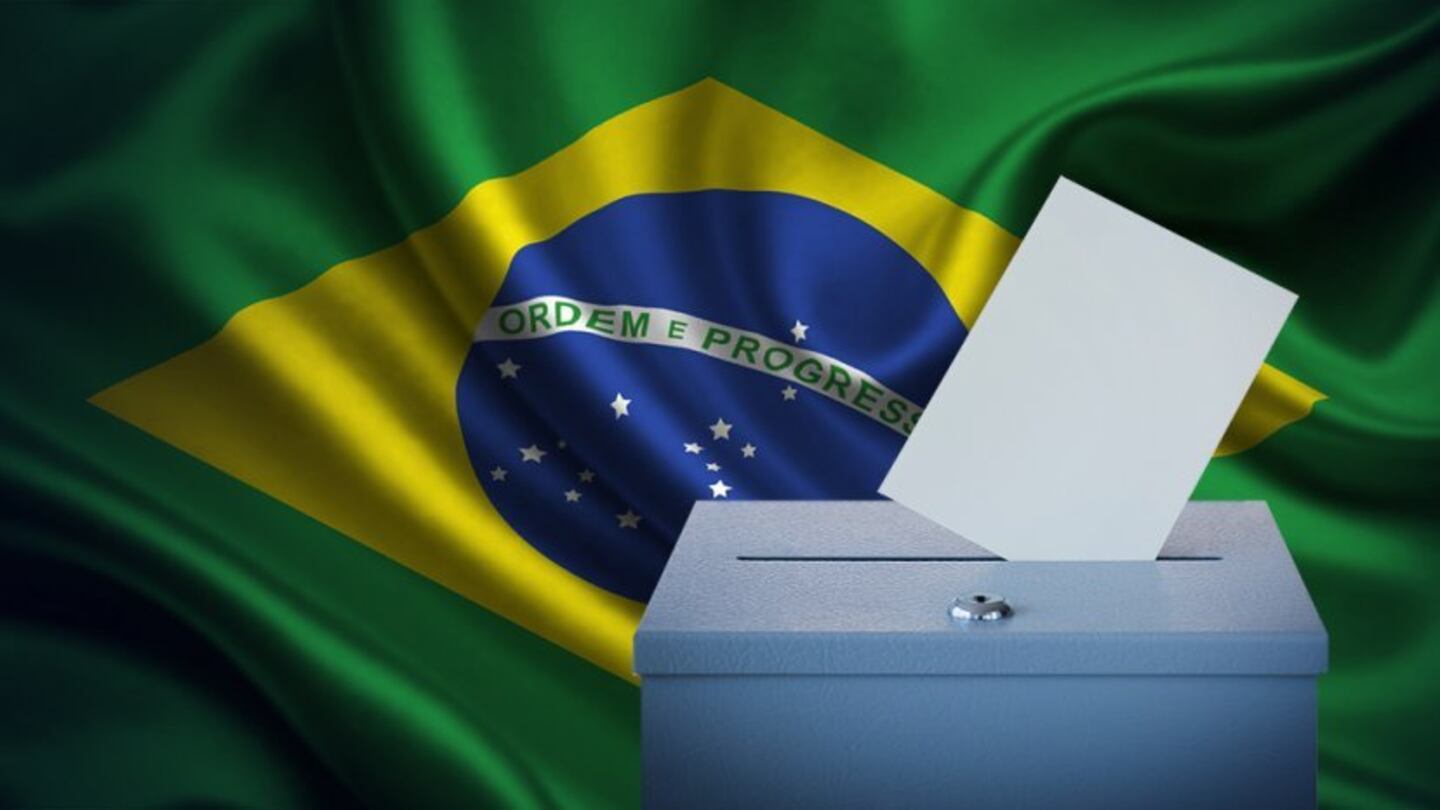Rituraj Sapkota is a Whakaata Maōri videographer and journalist.
Brazil: Iza Majahua Tapuia is on a boat on Rio Tapajós, a major tributary of the Amazon river, when she responds to my request for an interview. She sends me a photo of her on the boat and a video of a motorboat skimming along a river alongside theirs.
"Estou chegando da aldeia. (I am coming from the village). "You can send me the questions."
I do not ask which village and how long it will take her to get to Santarém - too many steps are involved in translation. I pull up my questions, translated on Google and proofread by a friend and I send them to her. The journey turns out to be a lot longer than I expected and she sends me back her responses seven hours later, detailing why the election on Sunday is a watershed moment.
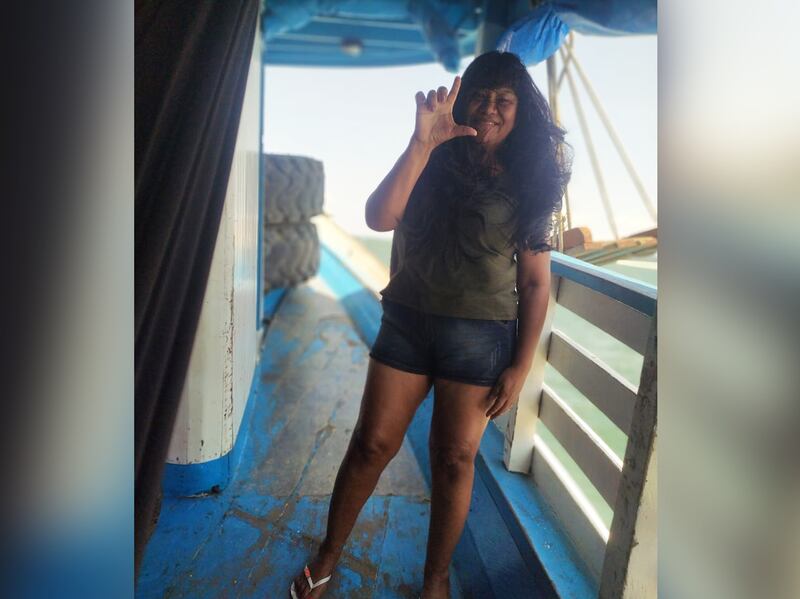
Environmental activist Iza Tapuia has decided to be actively involved in the election campaign among her people in her home state of Pará.
“We will either move forward, consolidating the indigenous rights guaranteed by the 1988 constitution or we will move backward,” she says.
Tapuia is an indigenous leader from the Tapuia people, a professor of philosophy and sociology, and an environmental activist.
“On Sunday we will vote with the conviction that we are waking up to a new sun and a new utopia."
Second round of elections
Sunday (October 30) is the presidential election run-off in Brazil. In contention are the incumbent, Jair Bolsonaro, and Luiz Inácio Lula da Silva (Lula), who was President from 2003 to 2010.
Although Lula was the leading candidate in the first round of elections on October 2, with 48.4% of the votes, he failed to win an outright majority. Under Brazilian election rules, he must now go head to head in a play-off against Bolsonaro, who got just over 43% of the votes in the first round.
Come Sunday, and indigenous people in Brazil will know what kind of war they have to fight, says Edson Krenak, an indigenous Krenak in his last year of PhD at Vienna University.
“A war with some hope and a future, or a war where we have no hope at all.”
The two candidates couldn’t be more different. Lula is left-wing, Bolsonaro is right-wing - far right. For Krenak it is “democracy against an authoritarian government, a military regime.
“And ‘democracy’ represents for Brazil’s indigenous people an easier war, if I may use the word,” he says.
An 'invisible war'
“One thing is a government that is hard to negotiate with. Another thing is a government that is saying we don’t care if you die,” says Aline Frey, who has a PhD in Communication and Cultural Studies at the University of Queensland, Australia.
Originally from Brazil, she has been living in Aotearoa since 2009.
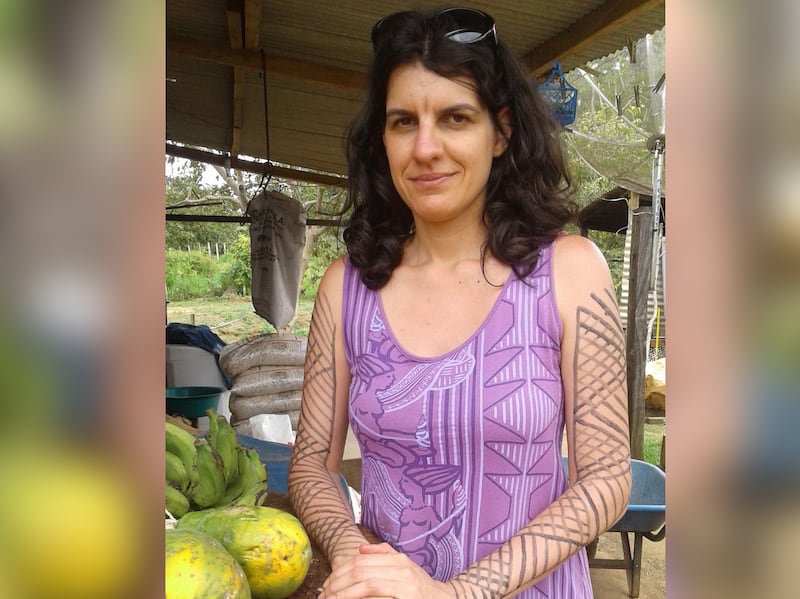
Aline Frey at Tupinaba Village, State of Bahia during an edition of the Cine Kurumin, an Indigenous film festival where she is one of the curators.
“Nowadays, indigenous grassroots fighters talk about war - that’s the expression. There’s an invisible war happening in the Amazon. It’s a war against nature and against indigenous people.”
The Bolsonaro administration has legitimised this invisible war where people are being killed, says Frey, “because they want all the gold, all the resources".
Mining for resources in Brazil is a big industry, and players range from multinational corporations to garimpos (wildcat mines) where armed, illegal miners come into direct conflict with indigenous groups such as the Yanomami and the Munduruku, living in protected areas. Illegal mining has shot up multifold in the past decade and its effects are visible.
Miners use mercury in their search for gold; Munduruku villages have record levels of mercury contamination (every person in three villages in Pará in a 2021 study was found to be contaminated with mercury).
Miners leave behind craters after searching for gold, which serves as ideal breeding grounds for malaria, and malaria cases among the Yanomami have soared 12 times since 2014.
'Anti-indigenous'
While all this hasn’t happened in the last president’s term alone, Bolsonaro has actively downplayed the effects of wildcat mining and sought to legalise mining on indigenous lands- a move even mining firms operating in Brazil opposed.
“If there’s one promise that he (Bolsonaro) kept in the last four years, it was that not even one inch of indigenous land will be demarcated [have its boundaries recognised],” Krenak says.
Tapuia minces no words in describing Bolsonaro’s tenure. “Captain Bolsonaro and General Braga Neto (Bolsonaro’s defence minister) are a risk to the world, to the Amazon and to indigenous peoples,” she says. “In these four years, Bolsonaro has made indigenous people a target for land grabbers, miners, agribusiness, and even indigenous lands have been left free to be invaded, exploited, destroyed and their people killed and their women violated."
“We cannot underestimate the level of destruction, the level of damage the first term of Bolsonaro did to the country,“ Frey says.
It’s a system that says, “If you want to survive, you should become us. And if you don’t want to become us, we don't mind having to destroy you," Frey says.
The Brazilian state’s actions against the interest of indigenous communities aren’t new. “We are not talking about something that started from Jair Bolsonaro.
“When you are looking from an indigenous perspective, you’ll need to look back at the process that started with colonisation.”
Lula, in his term, worked actively to push through and expedite the construction and development of the Belo Monte dam, which displaced thousands of people and threatened the livelihood of indigenous people living along the Xingu river. The licence to build the dam was granted during the term of Dilma Rousseff, Lula’s successor from the same party.
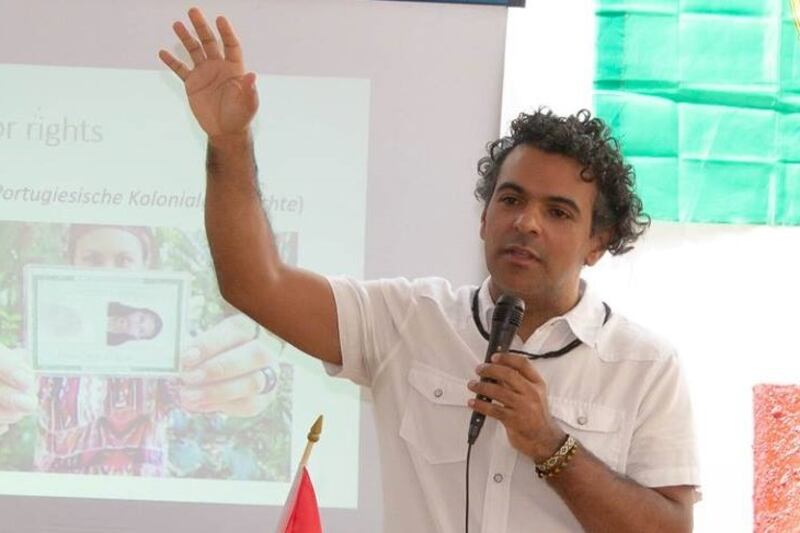
Edson Krenak is in his final year of PhD in social and cultural anthropology, with special focus on legal anthropology
“Lula represents a government that is not necessarily friendly to indigenous peoples but it is a government that you can still negotiate with,” Krenak says. “But when we’re talking about Bolsonaro, it is a government that is openly and entirely anti-indigenous.”
Krenak believes a lot of it comes down to having people in the bicameral National Congress who are sympathetic to the cause of indigenous people and the environment. The number has shrunk in the past 10 years, he says, giving way to more right-wing members supportive of gun rights, agri-business interests and religious fundamentalists- commonly referred to as the BBB bench- (Bala or bullet, Boi or ox and Biblia or bible)
Representation matters
Brazil’s indigenous population comprises only 0.4% of the population. In a country that big, that number still amounts to close to a million people. Representatives have been few and far between.
When Joênia Wapixana was elected to the Chamber of Deputies in 2018, she was the first indigenous woman, and only the second indigenous person (the first being Mário Juruna in 1982) to hold that seat.
“Joênia Wapixana showed indigenous leaders and people that their voices could be heard,” Krenak says. “That’s why we had the highest number of indigenous candidates this election- almost 200.”
There were victories. Five were elected to the Chamber of Deputies (Lower House) and two to the Senate (Upper house).
“It’s not necessary that because they are indigenous, they are going to advocate for indigenous issues,” Frey warns, “Just as a woman representative might not always champion women’s rights.”
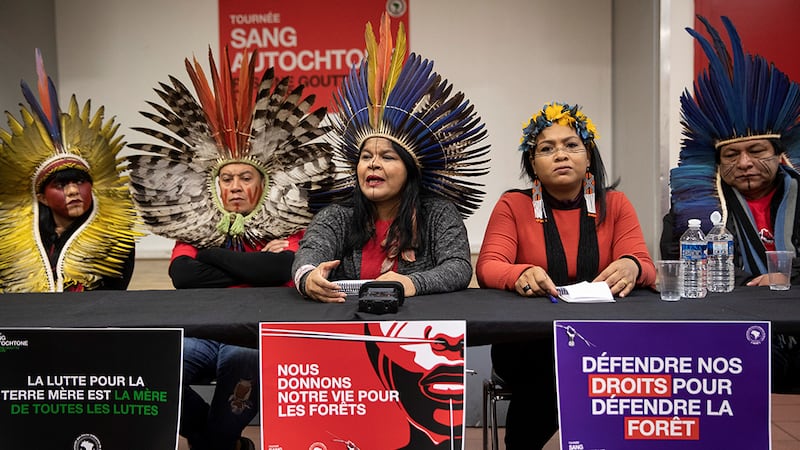
Elected federal deputies Celia Xacriaba (far left) and Sonia Guajajara (centre) / Getty Images
But two deputies- Sonia Guajajara and Célia Xakriabá are vocal advocates for indigenous and environmental rights and Krenak is optimistic that their voices will make a difference in an otherwise right-wing heavy Chamber.
“In the past we had none (representatives),” he says. “Ten years ago we had so many projects- hydroelectric dams, highways and mining - legal mining, which was approved because there was not one voice saying how these projects would impact indigenous people.”
Representation also brings visibility. “I travelled across Brazil many times,” Krenak says. “I was tired of people asking “there are still indigenous people in Brazil? I thought they were all gone!
“The narrative that first nations are extinct species- you might be familiar with it, right?” he says.
Women at the forefront
Indigenous movements are now increasingly led by women, says Krenak, a stark change from the Brazil of the 1960s through to the 1990s, when only men were seen. They would go to the cities to fight for the communities and “they would get dragged into prostitution, alcohol, money, corruption,” he says.
“Now the movement takes a completely different shape with women in power because they don’t abandon their communities,” Krenak says. "And so their fight is stronger.”
"They don’t go alone, they bring their babies to the streets and protests, and even to meet the President. That sends the message that we are not alone.”
An issue for the whole world
“It should be of concern to us that one of our planet’s lungs is at risk,” says New Zealand MP Ricardo Menendez March, referring to the Amazon.
March was a part of a parliamentary delegation led by Speaker Adrian Rurawhe that earlier this month visited Chile, Uruguay, Argentina and Mexico. The issue of the Brazilian election is a hot topic because it has huge repercussions in the region, March says.
“There was a real concern that a continuation of the Bolsonaro administration could end up in entrenching the destruction of the Amazon as well as putting in danger the rights of indigenous people.”
“The wellbeing of the Amazon is connected to the wellbeing of other ecosystems.”
“Amazonia is our home and we are the guardians of this treasure (preciosidade) that helps the world to live,” Tepuia says. "This October 30, all eyes will be on this election because we either continue with this barbarian or we continue on the way to peace.”
The outcome of this election carries ramifications for indigenous peoples worldwide, Krenak says.
“There is a shared belief that the planet is sacred, and any part of the planet belongs to the same body. And this body in Brazil has been violated in so many ways,” he says.
“We are here fighting not only for indigenous people but also fighting for humanity as a whole, for other species, and for life as we know it.”

